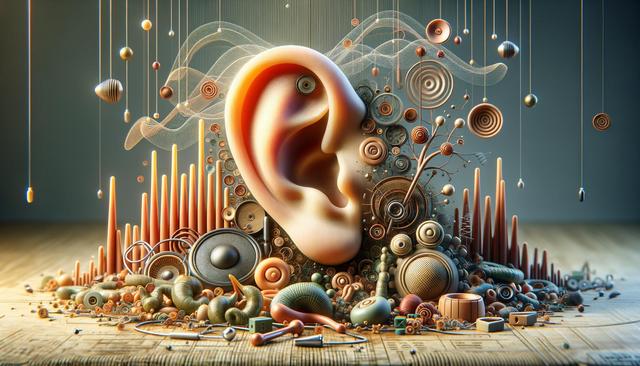Understanding Tinnitus and Its Impact
Tinnitus, often described as a ringing or buzzing in the ears, affects millions of individuals worldwide. It can stem from various causes, such as prolonged exposure to loud noise, ear infections, age-related hearing loss, or underlying medical conditions. Though not a disease itself, tinnitus is a symptom that can significantly interfere with daily life, causing sleep disturbances, difficulty concentrating, and emotional stress. For many, the search for relief can be frustrating, especially when traditional treatments offer limited results.
The complexity of tinnitus lies in its subjective nature—what one person experiences may differ greatly from another. This variability has led to a growing interest in developing new, adaptable management options. As awareness increases, healthcare professionals and researchers are exploring innovative strategies that go beyond conventional hearing aids and masking devices. These advancements are paving the way for a more nuanced approach to care that considers the individual needs and experiences of each patient.
Sound Therapy and Digital Tools
Sound therapy has long been a staple in tinnitus treatment, but new digital tools are enhancing its effectiveness. These tools use customized soundscapes to help the brain reduce its focus on the tinnitus sound, offering a form of auditory distraction or habituation. Recent developments include smartphone apps and online platforms that allow users to tailor sound therapy to their unique hearing profile and preferences.
Some key features of modern sound therapy tools include:
- Personalized sound libraries that include white noise, nature sounds, and ambient tones
- Integration with wearable devices or hearing aids
- Timer functions to support use during sleep or meditation
- Data tracking to monitor usage and symptom changes over time
These digital advancements make sound therapy more accessible and user-friendly, enabling more consistent usage and better adherence to treatment routines. As technology continues to evolve, these tools are expected to become even more adaptive and responsive to user feedback.
Cognitive Behavioral Therapy (CBT) for Tinnitus
Cognitive Behavioral Therapy (CBT) is gaining recognition as a valuable tool in managing the psychological effects of tinnitus. While CBT does not eliminate the tinnitus sound, it helps individuals change their emotional response to it. Patients learn to reframe negative thoughts, reduce anxiety, and develop coping strategies that improve their quality of life.
CBT programs for tinnitus typically involve:
- One-on-one or group sessions with a trained therapist
- Guided exercises to identify and challenge unhelpful thoughts
- Relaxation and mindfulness techniques
- Homework assignments to reinforce skills between sessions
Studies have shown that CBT can lead to significant reductions in tinnitus-related distress, especially when combined with other therapies. Online CBT programs are also becoming more available, offering flexible access for those who may not have local support or prefer digital options.
Neuromodulation and Brain Stimulation Techniques
Neuromodulation is a promising area of research that targets the brain’s neural networks involved in tinnitus. Techniques such as transcranial magnetic stimulation (TMS) and transcranial direct current stimulation (tDCS) aim to alter brain activity patterns that may be contributing to the perception of tinnitus. These non-invasive methods are typically administered in clinical settings and are being evaluated for their ability to provide lasting relief.
Key benefits of neuromodulation include:
- Non-invasive application with minimal side effects
- Potential to reduce tinnitus intensity and improve attention
- Complementary use alongside other therapies
While still considered experimental in some regions, neuromodulation is showing promising results in clinical trials. Continued research is focused on optimizing treatment protocols and identifying which patients are most likely to benefit from this approach.
Lifestyle Changes and Holistic Strategies
In addition to medical and technological interventions, lifestyle changes play an essential role in managing tinnitus. Stress, poor sleep, and unhealthy habits can all exacerbate symptoms, making holistic strategies a valuable part of any tinnitus care plan. By addressing these contributing factors, individuals can often reduce the severity and impact of their tinnitus.
Helpful lifestyle recommendations include:
- Practicing stress-reduction techniques such as yoga, meditation, or deep breathing
- Establishing a consistent sleep routine
- Limiting caffeine and alcohol intake
- Protecting ears from loud environments using earplugs or noise-canceling headphones
Many individuals also benefit from joining support groups, either in person or online, to share experiences and coping strategies. These community environments can enhance resilience and reduce the sense of isolation that often accompanies chronic tinnitus.


